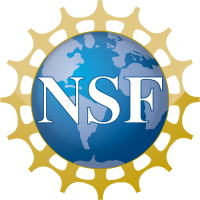By: Roberto Delgado, Program Director, Arctic Observing Network Section for Arctic

Update on Arctic Fieldwork for 2020 and Upcoming Office Hours
The primary goals of NSF's Office of Polar Programs remain the health and safety of our program participants and preventing the introduction of COVID-19 to communities or research stations in the Arctic. NSF encourages all researchers to consider postponing Arctic fieldwork. Researchers should work with their managing program officer if considering fieldwork and make alternative arrangements to accomplish the scope of awarded work. Anyone traveling to the field must follow all applicable US federal, national, regional, local, and tribal requirements.
On 5 August 2020, 10:00–11:00 a.m. AKDT / 2:00–3:00 p.m. EDT, the NSF Office of Polar Programs (OPP) will convene a program manager chat about COVID-19 impacts to NSF operations. Specifically, the Section for Arctic Sciences (ARC) will offer a virtual office hour to share information with the Arctic research community regarding NSF's current operations. These office hours will also allow the community to ask questions, share concerns, and offer suggestions on how ARC can do more to address the impact of COVID-19 on researchers.
All are welcome to attend this webinar. Register here.
New Arctic Research Support and Logistics Services Contract
The National Science Foundation (NSF) has awarded Battelle Memorial Institute the Arctic Research Support and Logistics Services contract. On this ten-year, $260 million contract, Battelle and its partners will provide infrastructure and logistics support to academic researchers conducting NSF-funded studies in Alaska, Greenland, Canada, and other Arctic areas. Battelle has assembled a highly skilled team, including three subcontractors with roles on the previous contract. Polar Field Services will provide logistics, operations, facilities, and other support. Ukpeaġvik Iñupiat Corporation (UIC) Science, an Alaska Native village corporation, is uniquely qualified to provide operational support on the North Slope of Alaska, support local hiring, and assisting researchers in working effectively with North Slope communities. The University of Colorado School of Medicine will provide medical risk management and telemedicine support to researchers and staff working in the field. The Battelle team also includes the expertise of specialty performers. Stantec will apply its Arctic architectural and engineering experience to design and construct needed facilities. The San Diego Supercomputer Center will apply its advanced computation and data integration expertise to support the development of an operations and data gateway that captures information needed by the researchers, the NSF, and stakeholders.
New Staff Join Section for Arctic Sciences
Dr. Colene Haffke has joined OPP's Section for Arctic Sciences and will be working alongside Dr. Marc Stieglitz as Program Director for Arctic Natural Sciences. Dr. Haffke earned her PhD from the University of California, Irvine, in Earth System Science in 2015. She then joined the Office of Polar Programs as a Science Assistant helping OPP with their proposal review and management processes. At the end of her two-year term at NSF, Colene transitioned to the position of Deputy Program Manager and Senior Support Scientist at NASA Headquarters in the Cryospheric Sciences Program in a contract position. In that capacity, she helped manage research awards to study land and sea ice in the Arctic and Antarctica, including research awards supporting NASA's Operation Ice Bridge and ICESat-2 missions. Her duties included managing existing awards, organizing peer review for new award selections, representing Cryospheric Sciences within NASA Headquarters and at external meetings, supervising high school and college interns, and providing guidance on Earth System Science research.
Dr. Erica Hill, from the University of Alaska Southeast, has joined OPP’s Section for Arctic Sciences as the Program Director for the Arctic Social Sciences Program. Dr. Hill earned her PhD in 1999 from the Department of Anthropology, University of New Mexico. She is an archaeologist who has worked on projects throughout the U.S., in Mexico, Peru, and for the last fifteen years, in Alaska. Her work integrates archaeology, biology, environmental sciences, and geography in both Alaska and Chukotka to reconstruct human-animal relations in the past, looking at the intersection of human settlement and marine mammal migration. In addition, she was selected as a 2016-2017 Fulbright-NSF Arctic Scholar to the University of Iceland, where she studied the Viking settlement period, and how humans adjusted to a previously uninhabited landscape.
For Further Information, please see:
- NSF Information Regarding COVID-19
- OPP Science Support and Operational Changes in Response to the COVID-19 Pandemic
- Arctic Research Opportunities (NSF 16-595) Proposals Accepted ANYTIME
- Developing New Research Collaborations Between Evolutionary Biologists and LTER Scientists (NSF 20-038) Proposals accepted before 1 April 2021
